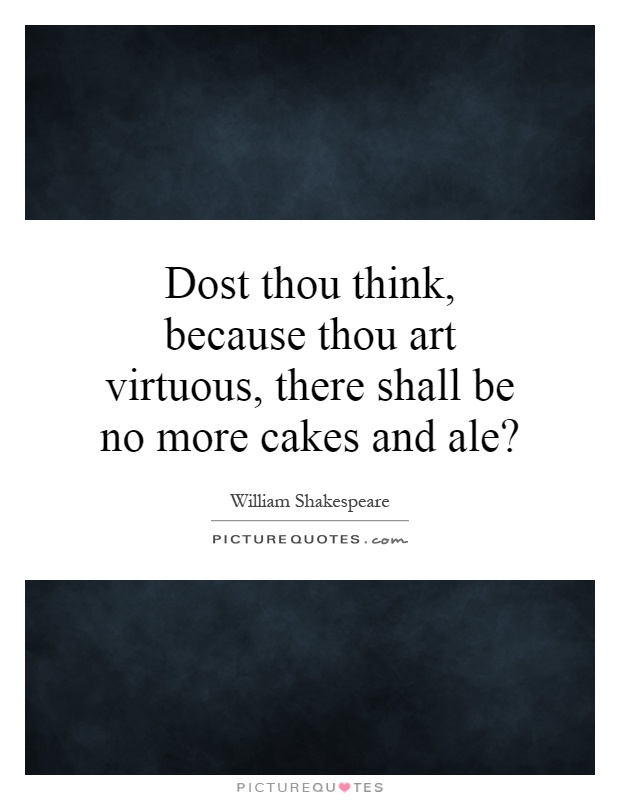Dost thou think, because thou art virtuous, there shall be no more cakes and ale?

Dost thou think, because thou art virtuous, there shall be no more cakes and ale?
The quote “Dost thou think, because thou art virtuous, there shall be no more cakes and ale?” is from William Shakespeare’s play Twelfth Night. This line is spoken by the character Sir Toby Belch, who is a jolly and carefree character known for his love of food and drink. In this particular scene, Sir Toby is speaking to Malvolio, a puritanical steward who disapproves of Sir Toby’s lifestyle and tries to impose his strict moral code on others.The quote is a reflection of Sir Toby’s belief that just because someone is virtuous or morally upright, it does not mean they cannot enjoy the pleasures of life such as cakes and ale. Sir Toby is essentially questioning Malvolio’s rigid beliefs and suggesting that it is possible to be virtuous while still indulging in earthly delights.
This quote highlights a recurring theme in Shakespeare’s works, which is the tension between morality and pleasure. Throughout his plays, Shakespeare explores the complexities of human nature and the struggle to balance moral values with the desire for enjoyment and fulfillment. In Twelfth Night, this theme is embodied in the contrast between characters like Malvolio, who represent strict adherence to moral principles, and characters like Sir Toby, who prioritize pleasure and enjoyment.
Sir Toby’s question challenges the idea that virtue and pleasure are mutually exclusive, suggesting that it is possible to be a good person while still enjoying the simple pleasures of life. This sentiment is echoed in other works by Shakespeare, such as Hamlet’s famous line “There is nothing either good or bad, but thinking makes it so,” which emphasizes the subjective nature of morality and the importance of individual perspective.
Overall, this quote from Twelfth Night encapsulates Shakespeare’s nuanced exploration of morality and pleasure, reminding us that being virtuous does not mean denying oneself the joys of life. It serves as a reminder to find a balance between moral values and personal enjoyment, and to embrace the richness and complexity of human experience.












 Friendship Quotes
Friendship Quotes Love Quotes
Love Quotes Life Quotes
Life Quotes Funny Quotes
Funny Quotes Motivational Quotes
Motivational Quotes Inspirational Quotes
Inspirational Quotes